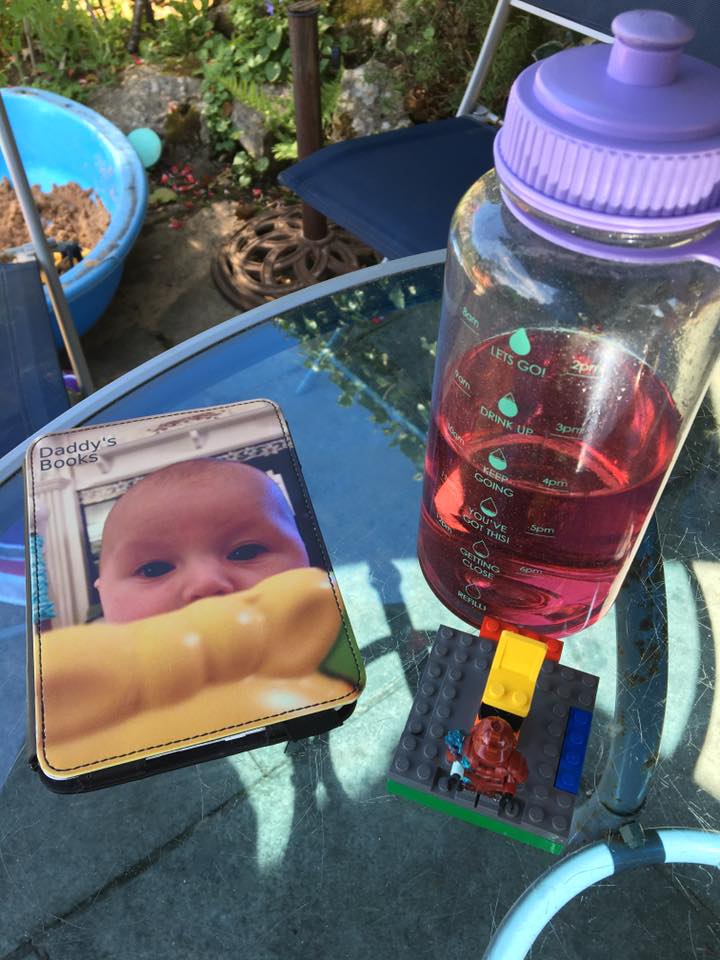The long, long months of lockdown have given people the chance to learn new languages, transform their gardens or master the art of baking. I’m still terrible at all of those things, so I’ve spent most of my spare time reading.
After treating myself to a new Kindle, I’ve read around 23 books during lockdown, which is about 20 more than I read in the whole of last year. You could look at this as a bit indulgent, but as a Content Writer whose career was born out of a love of reading as a child, I’ll argue that it’s an essential part of my job to read as much as possible – outside of working hours of course.

Reading isn’t just important for writers though. There’s a reason my 7-year-old son has been given a summer reading challenge to take part in, encouraging him through gamification to read as much as possible.
It takes us to other worlds, engaging our imaginations in ways that TV shows and movies just can’t as well as expanding our vocabulary, reducing our stress levels, improving our memories, focus and concentration and even slowing the process of Alzheimer’s and Dementia.
There’s another benefit to reading that I’ve been consciously exploring during lockdown, and that’s the ability to expand our minds and our understanding of other people by reading their stories. And that’s so important right now in a world that still emphasises our differences and tries to divide us by our race, gender, sexuality, nationality, etc.
I realised that while I’ve been a voracious reader since I learned how to read, there’s been a problem with the authors I’ve been reading. Here’s a list of my favourites, why not see if you can spot the issue: Stephen King, James Ellroy, Terry Pratchett, George R.R. Martin, Ian Fleming, Elmore Leonard, Douglas Adams, Haruki Murakami.
Yes, my reading lists were sorely lacking in female voices and I’m willing to bet the same is true for a lot of men. It’s not that I consciously avoided books written by women, but it’s telling that one of the few women I’d read several books by was Sue Townsend, because even those books were about a male character (Adrian Mole of course).
But even if it wasn’t a conscious decision, it still reflected an unconscious bias that I had; disregarding books by women as generally being books FOR women, not for me. So, I made the decision a couple of months ago to deliberately read more books by female writers and, in the spirit of sharing, here’s what I read:
- Wow, No Thank You by Samantha Irby
- On Chapel Sands by Laura Cumming
- Queenie by Candice Carty-Williams
- A Theatre for Dreamers by Polly Samson
- Hamnet by Maggie O’Farrell
- Three Hours by Rosamund Lupton
- Inland by Téa Obreht
- The Power by Naomi Alderman
- Things I Learned from Falling by Claire Nelson
- It’s Not Ok to Feel Blue by Scarlett Curtis and many other people
- Where the Crawdads Sing by Delia Owens
- Normal People by Sally Rooney
I can’t write about all of them here but they’ve all affected me in some way or another and even those that sit more comfortably in the kind of books I’ve normally read (Inland, for example) have presented the female voice in ways that you understandably don’t get from male authors.
Some of the ones that I’ve enjoyed the most have been those that would definitely have fallen into the ‘books for women, not for me’ category before, like Queenie and Normal People. Queenie recently won the British Book Awards Book of the Year while Normal People hit the headlines a few months ago because of the excellent TV adaptation. Both are incredible books that expanded my understanding of the world around me in ways that noir novels set in 1940s L.A. wouldn’t have done.
There are still gaps in my reading that I want to address. While I mentioned Haruki Murakami earlier, he’s one of the few non-British/American authors I’ve ever read and Queenie demonstrated to me just how much I have to learn about the experiences of people of different racial backgrounds.
Social media has helped us find comfortable bubbles for ourselves, and another area I want to address is reading more books written by people I disagree with politically. That’s important too, even if it might turn out to be not quite as fun as reading all of the books I listed above, all of which reflected my worldview back at me even through the lives and experiences of people who aren’t me.
As a Content Writer it’s my responsibility to keep reading widely to inspire and influence my writing, but as people we shouldn’t miss out on the opportunity to broaden our horizons by listening to the stories of everyone around us. Wouldn’t the world be a nicer place if more of us have our heads buried in books instead of arguing with strangers on Twitter?


